Campo Global – Weltacker Odemira
Bridging Tradition and Innovation
The 2,000m² Campo Global will be based in Odemira, in southwest Alentejo, Portugal, near the Mira River and the entrance to the Parque Natural de Costa Vicentina—Portugal’s largest protected coastal area. This unique region is rich in biodiversity, combining Mediterranean, Atlantic, and North African vegetation, and is home to many rare and endemic plant species.
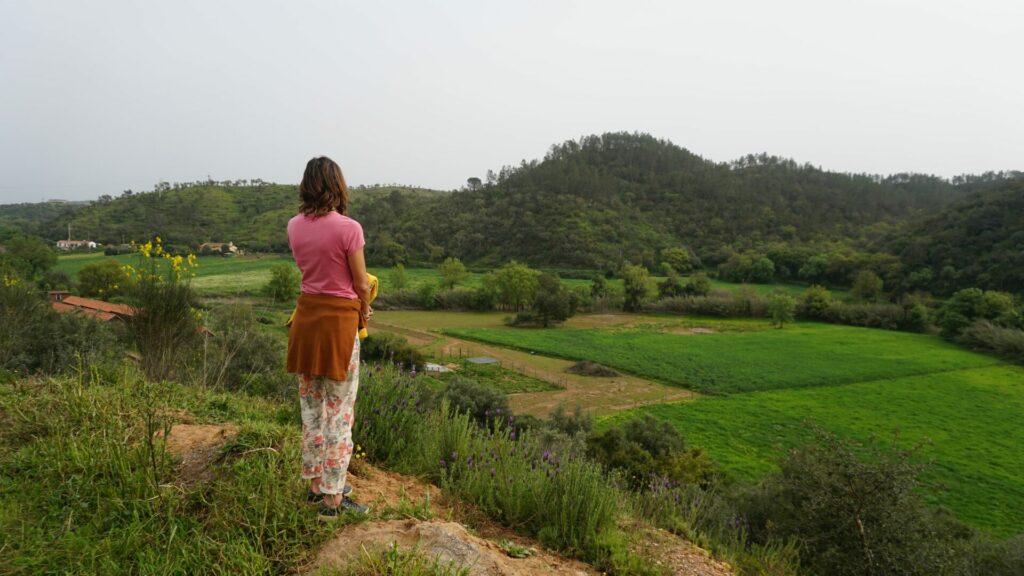
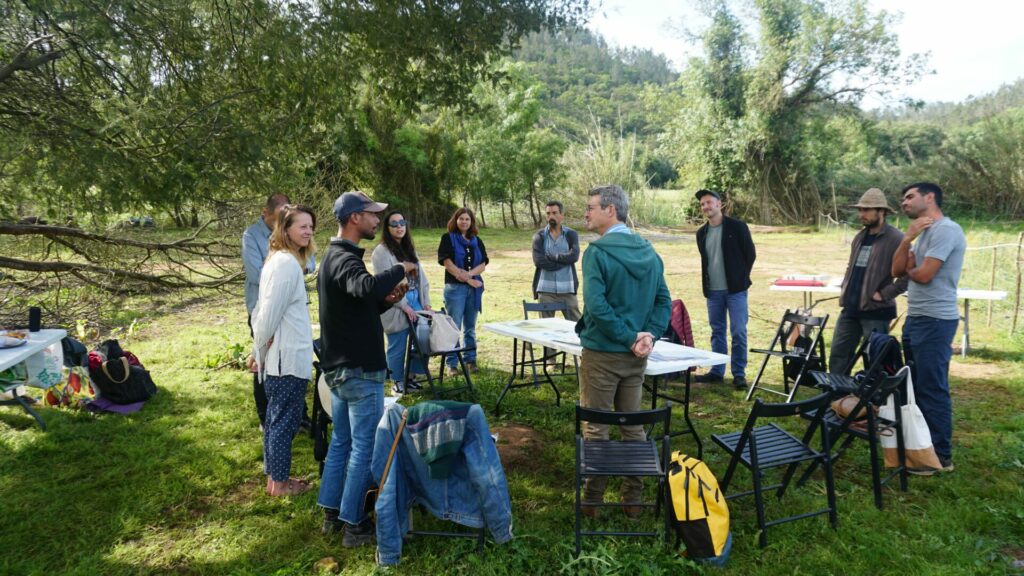
The project celebrates Odemira’s agricultural heritage while encouraging regenerative farming to restore the land, support biodiversity, and tackle challenges such as climate change, food security, and waste management. By promoting collaboration, civic participation, inclusive governance, and community involvement, the initiative aims to create positive impacts locally and beyond.
The genesis of Campo Global
Inspired by the ‘2,000 m² Global Field’ concept from Germany, the project was adapted to Odemira in 2023 through participatory activities led by the associations Jardim do Mira and Project Earth, with support from Erasmus+. Collaboration with local organisations and stakeholders plays a vital role in building a more cohesive and innovative community.
In 2024, with the support of the Municipality of Odemira, local and external groups worked together to develop the project. The process included dynamic, dialogue-driven sessions that engaged 46 participants from 25 organisations, fostering teamwork and sharing ideas.
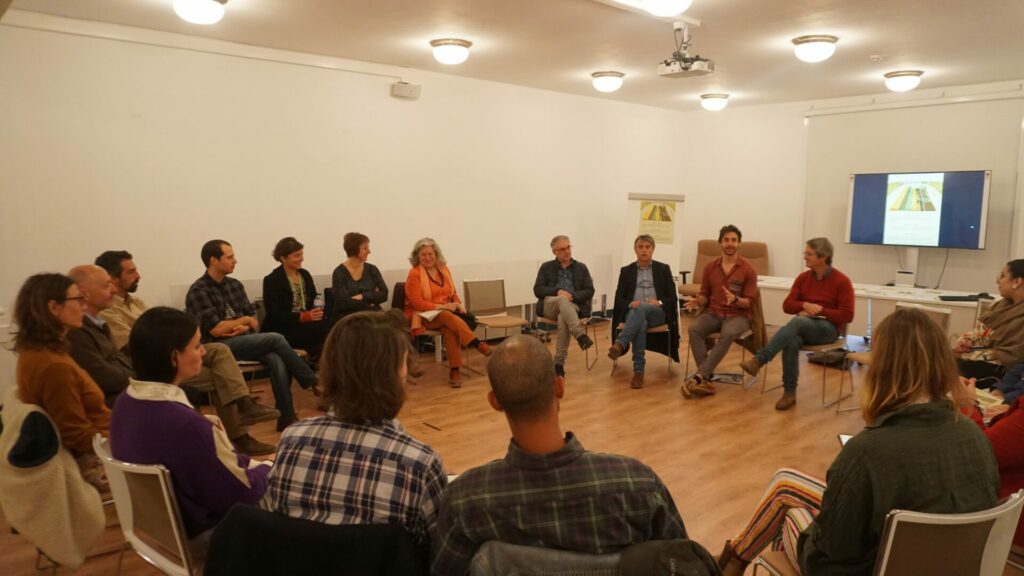
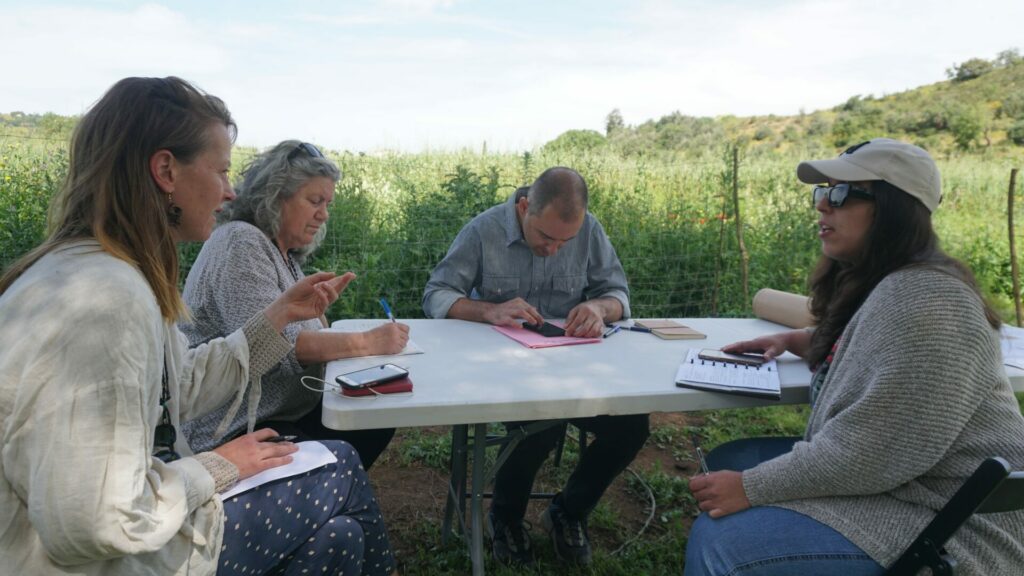
As the first Global Field in Southern Europe, Campo Global will test regenerative practices, support international partnerships, and explore solutions to environmental challenges, all while preserving the region’s natural heritage.
Desertification is an increasing threat to the area, which is home to 750 plant species, over 100 of which are rare or endemic. Campo Global’s ‘Biodiversity First’ approach connects traditional and innovative farming, encourages the use of local knowledge, and promotes mindful ecotourism.
We are grateful to the Municipality of Odemira, facilitators, and partners for their support in bringing this project to life.
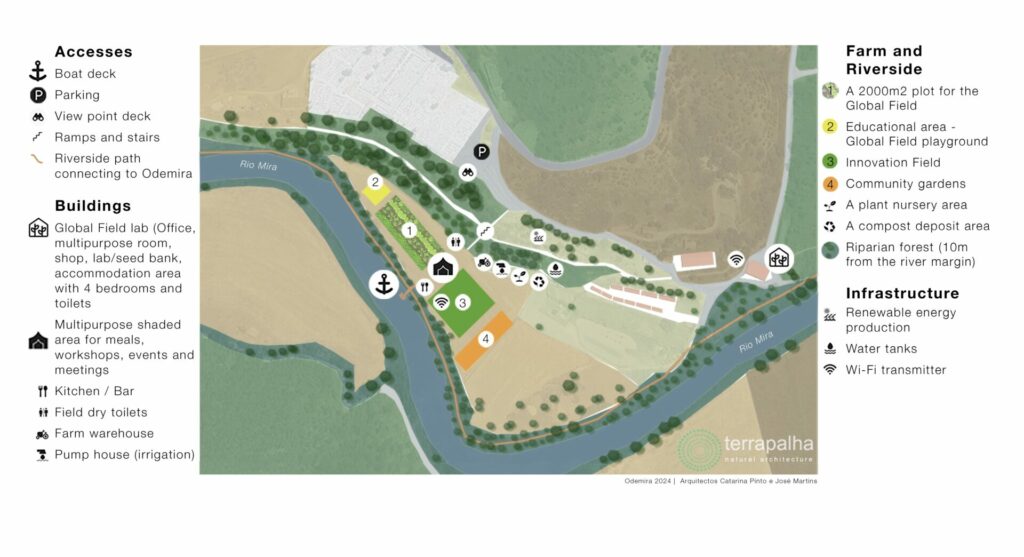
More information
Promoters:
Anja Henckel (Jardim do Mira)
Diogo Coutinho (Project Earth)
Facilitators:
Brenno Kaschner Russo (The Dialogue Lab)
José Donado (The Dialogue Lab)
Consultants:
Fátima Teixeira (Tamera Peace Research & Education Center)
André Vizinho (Cooperativa Regenerativa)
Miguel Encarnação (GAIA Alentejo)
Lanka Horstink (Gaia Alentejo, researcher at ICS-ULisboa)
Rita Magalhães (Gaia Alentejo)
Municipality of Odemira (CMO):
Margarida Joaquim (Technical Assistant, CMO)
Raquel Silva (Councillor, CMO)
José Luís Fernandes (Infrastructure and Sustainability, CMO)
Ana Raposo Campos (Official Collection Centre, CMO)
Hélder Guerreiro (Mayor of Odemira, CMO)
Isabel Palma (Councillor, CMO)
Pedro Ramos (Councillor, CMO)
Pedro Almeida (Chief of Staff, Mayor’s Support Office, CMO)
Isabel Vilhena (Communication – CMO)
Paula Metrógos (Strategic Programming Office – CMO)
Partners and Contributors:
Teresa Carvalho (Ciência Viva)
Sandra Soares (Ciência Viva)
Mariana Dias Coutinho (CACO)
Helena Loermans (CACO)
David Rezende (Jardim do Mira)
Delphine Attali (Rota Vicentina)
Sara Serrão (Regenerar Odemira)
Pedro Caria (School Colos)
Renata Nunes (School Sabóia)
Maria de Fátima Carvalho (Polytechnic Institute of Beja)
Tobias Keye (RCE Stettiner Haff, Global Field Rothenklempenow)
Chrisi Blaha (Playgroup/ Nature education)
António Nascimento (Algoceira and Vale do Bispo Residents’ Association)
Martin Winiecki (Institute for Global Peacework, Tamera)
Joel Barros (Tamera Peace Research & Education Center)
Catarina Pinto (Terrapalha – Natural Architecture)
Marcos Dias (Horta Nova)
Cosima Bachler (Alma Ohana)
Andreas Moik (Alma Ohana)
Victoria Silva (Alma Ohana)
Amélia Delgado (Biologist, Climate Pact Ambassador Portugal)
Lars Wild (Wild Forest Garden)
Denise Mansbart (Wild Forest Garden)
Maria José Rosa (ADL)
Maria João Duarte Pereira (ADL)
Vitória Penedo (Vita Cress)
Andreia Afonso (CEBAL)


